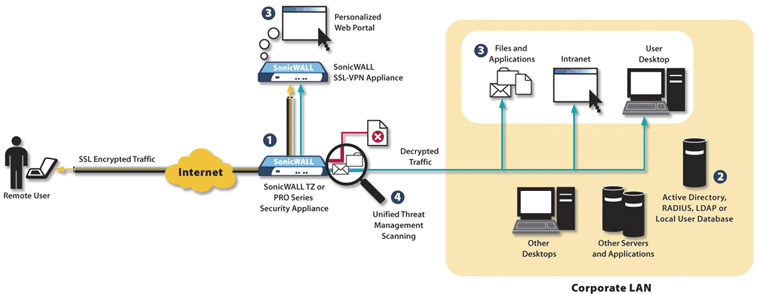

- #SONICWALL SSL VPN CLIENT SETTINGS DIFFERENT INSTALL#
- #SONICWALL SSL VPN CLIENT SETTINGS DIFFERENT CODE#
- #SONICWALL SSL VPN CLIENT SETTINGS DIFFERENT PASSWORD#

This option will allow to send groups in response. Login Method for the users associated with this policy.Įnables Second Factor during Login for users associated with this policy.Įnables Adaptive Authentication for Login of users associated with this policy. Configure the following Policy details for the Radius Client.Īny Identifier that specifies policy name.You can refer the table below for Vendor group attributes id.Otherwise keep it unchecked.Įnable this to send user groups as Vendor-Specific Group Attributes.
#SONICWALL SSL VPN CLIENT SETTINGS DIFFERENT PASSWORD#
(Keep this with you, you will need to configure same on VPN Server).Ĭheck this option for clients which takes password and the OTP in same request. IP address of VPN server which will send Radius authentication request.
#SONICWALL SSL VPN CLIENT SETTINGS DIFFERENT INSTALL#
MiniOrange offers free help through a consultation call with our System Engineers to Install or Setup Two-Factor Authentication for SonicWall solution in your environment with 30-day trial.įor this, you need to just send us an email at to book a slot and we'll help you setting it up in no time.Įnable Two-Factor Authentication (2FA)/MFA for SonicWall Client to extend security level. To integrate 2FA, you can enable RADIUS authentication in SonicWall and configure policies in miniOrange to enable or disable 2FA for users. You can opt for any of the 2FA methods to secure your SonicWall. MiniOrange supports multiple 2FA/MFA authentication methods for SonicWall secure access such as, Push Notification, Soft Token, Microssoft / Google Authenticator etc. What are different 2FA/MFA methods for SonicWall supported by miniOrange? On successful 2nd factor authentication the user is granted access to login.User response is checked at miniOrange’s RADIUS Server side.Here user submits the response/code which he receives on his hardware/phone.Now miniOrange RADIUS Server asks for a 2-factor authentication challenge to the user.Once the user's first level of authentication gets validated AD sends the confirmation to RADIUS Server.miniOrange RADIUS server passes user credentials to validate against the credentials stored in AD (Active Directory) / Database.User request acts as an authentication request to RADIUS Server(miniOrange).Primary authentication initiates with the user submitting his Username and Password for SonicWall.After the first level of authentication, miniOrange prompts the user with 2-factor authentication and either grants/revokes access based on the input by the user. MiniOrange accomplishes this by acting as a RADIUS server that accepts the username/password of the user entered as a RADIUS request and validates the user against the user store as Active Directory (AD). MiniOrange 2FA authentication for SonicWall Login VPN Clients that do not support RADIUS Challenge.VPN Clients that support RADIUS Challenge.The 2-factor authentication can be of two types depending on the VPN clients. At the same time, miniOrange 2FA solution ensures that your corporate network is protected from unauthorized access and mobile security threats.
#SONICWALL SSL VPN CLIENT SETTINGS DIFFERENT CODE#
When you enable 2FA, your users enter their username and password (first factor) as usual, and they have to enter an authentication code (the second factor) which will be shared on your virtual or hardware 2FA solution to get access to SonicWall VPN. SonicWall VPN is a uniform security module for Windows, Mac, and Linux users that enables remote users to securely connect to the remote network, and provide easy access to the data and resources which help them securely run any application on the remote network.You can enable Two-Factor Authentication (2FA) for your SonicWall managed active directory to increase security level. Two-Factor Authentication(2FA /MFA) for SonicWall VPN Two-Factor Authentication (2FA) for SonicWall VPN.


 0 kommentar(er)
0 kommentar(er)
